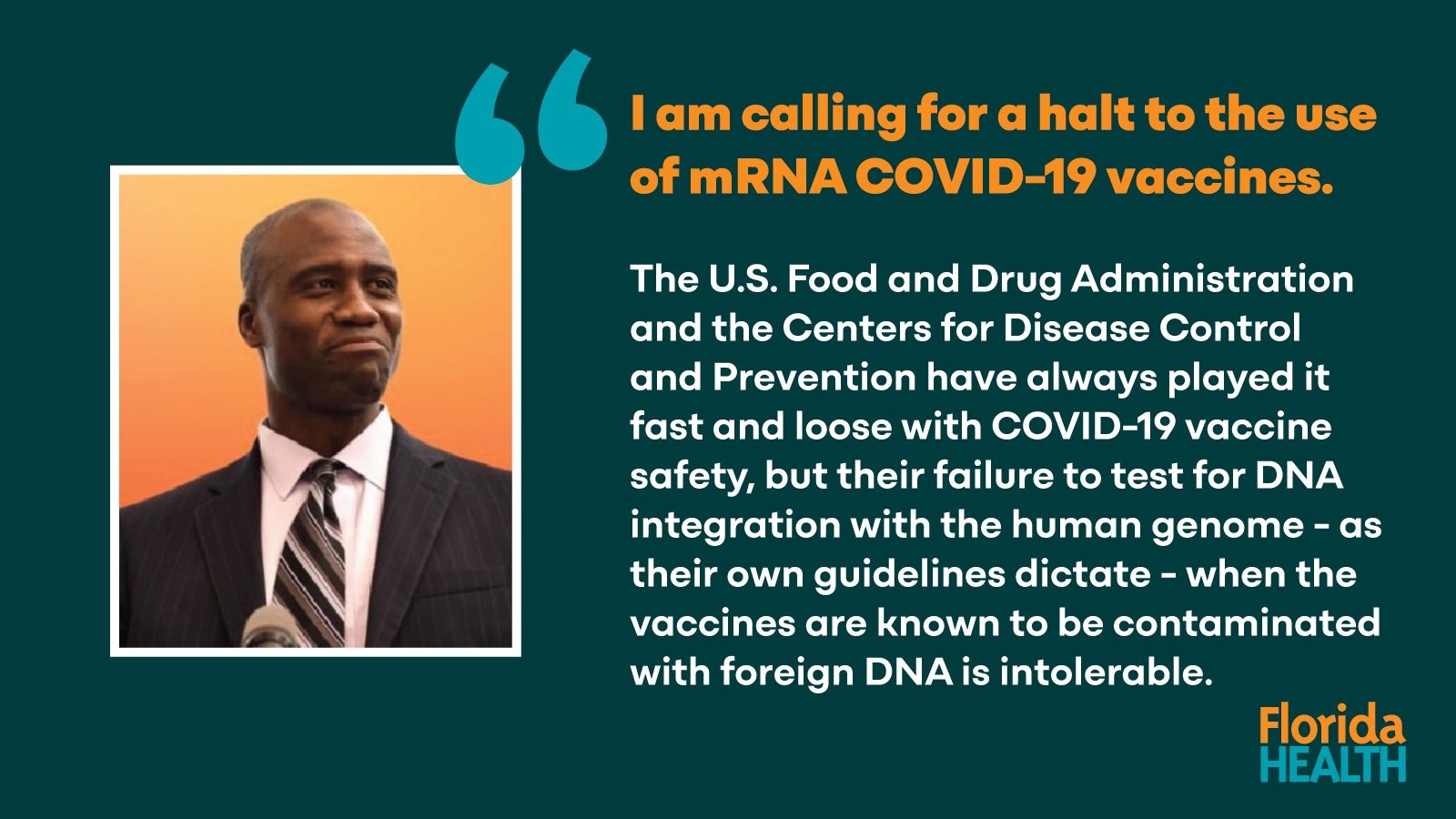Florida department of health has issued an official press release announcing State Surgeon General Dr. Joseph A. Ladapo's call for a halt in the use of COVID-19 mRNA products due to concerns about the presence of DNA fragments and the potential for DNA integration into human cells.

The Surgeon General highlighted the lack of assessment by the FDA of the risks outlined in their own guidance from 2007, and expressed concerns about the potential for DNA integration into of the human genome, which would pose a unique and elevated risk to human health.
State Surgeon General's letter to the FDA
Earlier last month, the Surgeon General asked the FDA in a letter to address the DNA fragments detected in mRNA COVID shots and "how they are hitchhiking into human cells", emphasizing that DNA integration into the human genome and oncogenesis are known risks.
The letter highlights the recent discovery of host cell DNA fragments within the Pfizer and Moderna COVID-19 mRNA shots. This finding raises significant concerns about the presence of nucleic acid contaminants. Of particular concern are the lipid nanoparticle complexes used for mRNA delivery. Additionally, the presence of SV40 promoter/enhancer DNA raises the potential risk of DNA integration into host cells.
Lipid nanoparticles are an efficient vehicle for delivery of the mRNA in the COVID-19 vaccines into human cells, and may therefore be an equally efficient vehicle for delivering contaminant DNA into human cells.
The State Surgeon General poses several crucial questions to the FDA regarding the DNA contaminants in the COVID-19 vaccines:
- Have the manufacturers of the mRNA COVID-19 vaccines evaluated the risk of human genome integration or mutagenesis of residual DNA contaminants, considering the additional risk from the lipid nanoparticle delivery system and SV40 promoter/enhancer? Has the FDA requested information from the manufacturers to investigate these risks?
- Do the current FDA standards for acceptable and safe quantities of residual DNA, which are known to be present as contaminants in biological therapies, consider the use of the lipid nanoparticle delivery system in the mRNA COVID-19 vaccines?
- Considering the potential distribution of mRNA COVID-19 vaccines and DNA contaminants throughout the body beyond the injection site, has the FDA evaluated the risk of DNA integration in reproductive cells concerning the lipid nanoparticle delivery system?
The concerns raised by the State Surgeon General regarding the presence of DNA contaminants in COVID-19 mRNA products highlight the need for thorough evaluation and transparency.
DNA fragments detected in monovalent and bivalent Pfizer/BioNTech and Moderna modRNA
A recent preprint study reveals billions to hundreds of billions of DNA molecules per dose were detected, 188-509 times higher than the guidelines set by the FDA and WHO. The plasmid DNA is likely encapsulated inside lipid nanoparticles.
These lipid nanoparticles have a unique structure with an outer layer made of lipids (a type of fat) forming a protective shell, and an inner core where the genetic material is encapsulated. This structure allows to effectively deliver the substance to cells while protecting it from nucleases, enzymes that can break down DNA molecules.
The results of the study suggest that the guidelines for residual DNA set by FDA and WHO may not be applicable to these type of products, and call into question the relevance of guidelines conceived before the introduction of efficient transfection using lipid nanoparticles.
While they provide valuable insights, it's important to keep in mind that preprints are early releases of research findings that have not yet undergone rigorous review and are intended to encourage further investigation and peer review before they are formally published.